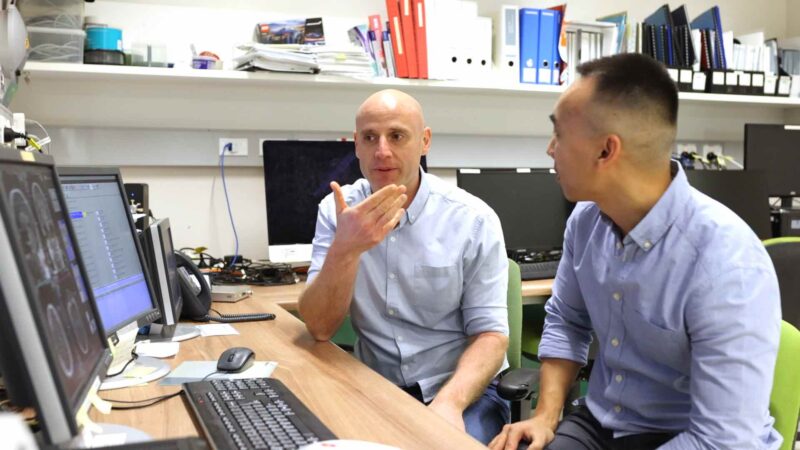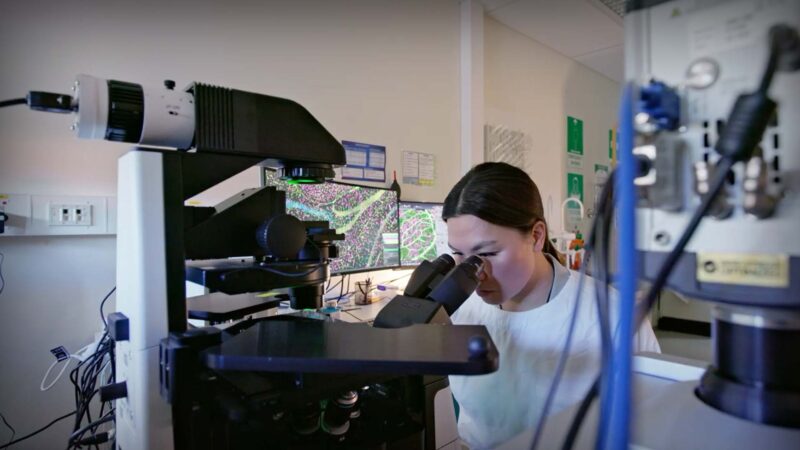TRANSFORMING CLINICAL CARE: IMPACT OF LEUKAEMIA FOUNDATION’S RESEARCH FUNDING INTO BLOOD CANCER
With
Bill Stavreski, Head of Research
Leukaemia Foundation, Australia
RESEARCH IMPACT
Filmed in Melbourne | May 2025
Released to coincide with World Blood Cancer Day 2025
The Leukaemia Foundation is committed to funding research innovations that drive advancements in new diagnostics, treatments and novel therapies, supporting the careers of promising scientists and clinicians and giving Australians access to global clinical trials.
The Leukaemia Foundation state there are over 120 different types of blood cancer and all of which the Foundation provides support to people.
Bill Stavreski is the Head of Research at the Leukaemia Foundation who talks about the research impact in recent years. The Foundation itself marks its 25th anniversary in 2025, having funded a wide range of health and medical research since 2000. With a focus on basic science, health services research, treatment, and care, the organisation has invested nearly $90 million (adjusted in current dollars terms) in approximately 370 research grants over the years.
The Foundation primarily relies on the generosity of public donations, with no government funding. This funding has led to significant advancements in clinical practice, including a groundbreaking diagnostic test now available across Australia, significantly easing the financial burden on patients.
One notable achievement includes the first successful growth of leukaemic cells in a dish, facilitating advancements in treatment testing. Additionally, the Foundation established a pioneering genomic screening program for patients with hard-to-treat blood cancers, significantly improving the chances of finding effective treatments.
Through this work, the Foundation underscores that research is centred on people, aiming to transform lives and support families affected by blood cancer.
Source: Adapted from the Leukaemia Foundation website and transcript
You Might also like
-
Professor Alex Fornito
PROFESSOR ALEX FORNITO
HEAD OF THE BRAIN MAPPING AND MODELLING RESEARCH PROGRAM
TURNER INSTITUTE FOR BRAIN AND MENTAL HEALTH, MONASH UNIVERSITY
VICTORIA, AUSTRALIA -
Dr Paul Griffin
MATER HEALTH SERVICES, QUEENSLAND, AUSTRALIA
-
Nutraceutical and pharmacological intervention in neurological disorders
Dr Virginie Lam is a neuroscientist and cerebrovascular biologist with over 15 years of research experience, including more than seven years post-PhD. She co-leads the Neurovascular and Metabolic Diseases Laboratory at the Curtin Medical Research Institute and holds an affiliate appointment at the Perron Institute for Neurological and Translational Science. Her research focuses on the interface between neurovascular health, cognitive function, and therapeutic translation in neurodegenerative disorders.



